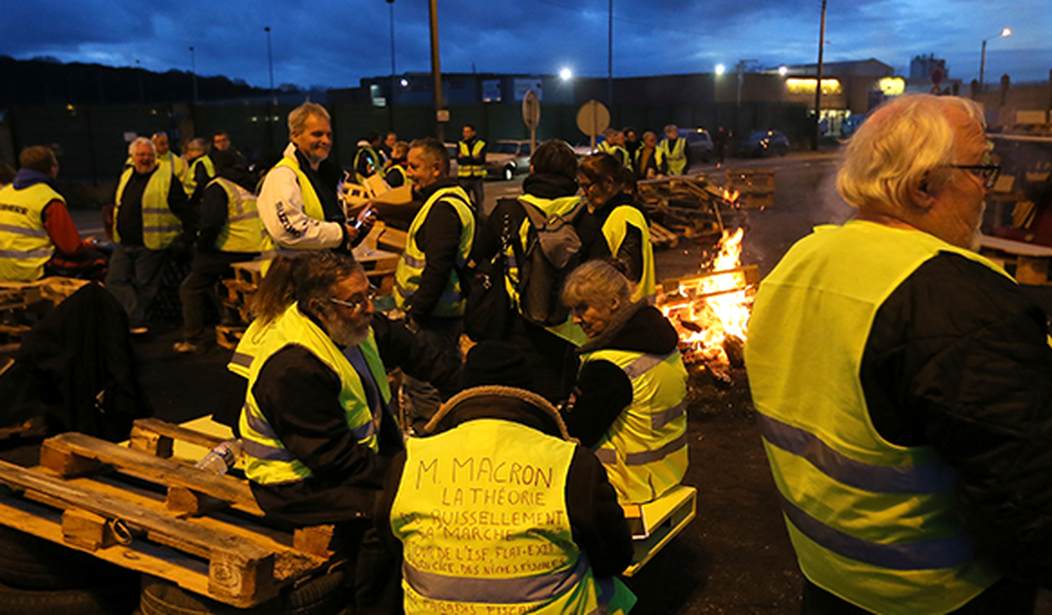NBC's Katy Tur, responding to an article in the New Yorker about climate, looked into the camera and asked, "How pointless is my life? And how pointless are the decisions that I make on a day-to-day basis when we are not focused on climate change every day, when it's not leading every one of our newscasts?"
It's a safe bet that not only will climate change not lead all newscasts, it will not even lead Tur's very often. And the reason is not any of those often proffered for failure to act in ways activists prefer. It won't be that she is a climate change denier. It won't be that she was bought off by the fossil fuel industry. And it won't be that she doesn't care.
It will not lead because her program is a business, and if she begins her newscast every day with the same story, people will tire of it pretty quickly and soon she'll be out of a job.
Still, I don't doubt Tur's sincerity. Both the American Psychiatric Association and the American Psychological Association have reported an increase in what is being dubbed "climate anxiety." Fear of catastrophe is apparently widespread. Kids return from school fearful that they won't live to adulthood. The National Resources Defense Council offers tips on "banishing the Climate Change Blues." Al Gore may have many fine traits, but his effort to sow panic about climate with "An Inconvenient Truth" (2006) was a tremendous disservice to reasonable policy making and to the very cause he was promoting. It was not based on sound science, and when its wilder predictions proved false ("within a decade, there will be no more snows on Kilimanjaro"), some concluded that the whole issue was fraudulent.
Climate change is what social scientists call a "wicked problem." Wicked problems are complicated, multi-faceted, and suffer from limited knowledge. They are not amenable to trial and error because there are too many different variables that could account for various outcomes.
Recommended
Climate activists are a little weak on complexity. All that prevents humanity from solving the climate change problem, they say, is big business (Bernie Sanders calls it "putting short-term profits of polluters before people") and Republicans.
Admittedly, Republicans who indulge the fantasy that global warming isn't a problem are being, at best, irresponsible. But Democrats who suggest that we should simply enact measures like carbon taxes because it's better to be safe than sorry ignore the fact that no policy is cost-free.
Look at France in the past week. Hundreds of thousands of people took to the streets and many rioted, setting 240 fires and damaging the Arc de Triomphe. Why? Because President Emmanuel Macron proposed to increase the already high taxes on gasoline to combat climate change. This doesn't hit all Frenchmen equally. It's particularly hard on rural people who rely more on their cars. Thus does a "precautionary" act cause social unrest and stoke urban/rural divisions. Additionally, the money spent to thwart climate change is money not spent on other social goods, like helping the poor or finding cures for diseases. Nothing is cost-free.
People who are taxed to save the planet are inclined to ask hard questions, such as: Should I forego a new roof on my house when countries like China are responsible for the lion's share of emissions? Last year, China's carbon emissions increased by 4.7 percent and India's by 6.3 percent. The European Union's emissions dropped by 0.7 percent, not nearly enough to offset Asia's growing economies.
The idea behind carbon taxes is that higher prices will incentivize the search for alternatives. But unless governments can devise methods to ensure that the poor and near poor are not made worse off -- say by providing the taxes back in the form of credits -- the burden will be rejected by voters.
Speaking of being rejected by voters, another misguided fear-mongering campaign by environmentalists has come home to roost now. Remember the movie "The China Syndrome," the Three Mile Island accident, and the hysteria about nuclear power that followed? That tantrum essentially halted the construction of new nuclear power plants in the U.S. -- the one form of energy that is cheap, noncarbon emitting and abundant. After the tsunami that crippled the Fukushima plant in Japan (causing no deaths), Germany closed down its nuclear industry altogether. Unreasoning fear blots out clear thinking. Nuclear power is safer than any other.
Solutions to this wicked problem will likely be technological. Government has a role in funding basic research (not companies like Solyndra). Hysteria is not policy.

























Join the conversation as a VIP Member